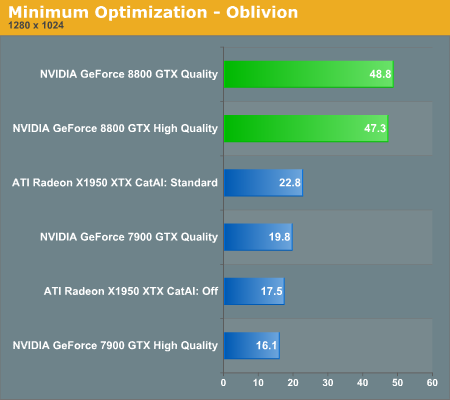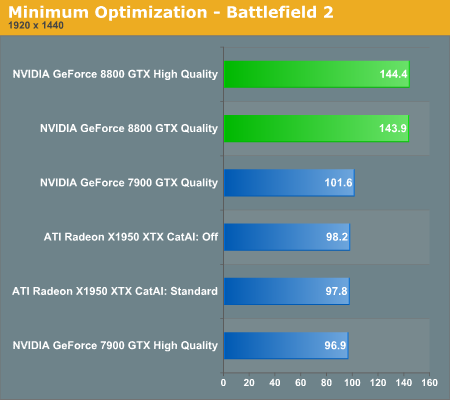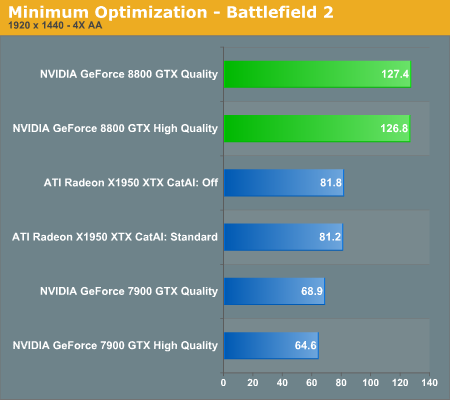NVIDIA's GeForce 8800 (G80): GPUs Re-architected for DirectX 10
by Anand Lal Shimpi & Derek Wilson on November 8, 2006 6:01 PM EST- Posted in
- GPUs
The thing to remember is that, even when all optimizations are disabled, there are other optimizations going on that we can't touch. There always will be. The better these optimizations get, the faster we will be able to render accurate images. Gaining more control over what happens in the hardware is a nice bonus, but disabling optimization for no reason just doesn't make sense. Thus, our tests will be done at default texture filtering quality on NVIDIA hardware. In order to understand the performance impact of High Quality vs. Quality texture filtering on NVIDIA hardware, we ran a few benchmarks with as many optimizations disabled as possible and compared the result to our default quality tests. Here's what we get:



We can clearly see that G70 takes a performance hit from enabling high quality mode, but that G80 is able to take it in stride. While we don't have the ability to specifically disable or enable optimizations in ATI hardware, Catalyst AI is the feature that dictates how much liberty ATI is able to take with a game, from filtering optimizations all the way to shader replacement. We can't tell if the difference we see in Oblivion is due to shader replacement, filtering, or some other optimization under R580.










111 Comments
View All Comments
DerekWilson - Wednesday, November 8, 2006 - link
No DX10 for winxp -- but you've got OGL with extensions.We will certainly take a look at DX10 performance once we have DX10 apps.
Have fun glimpsing :-)